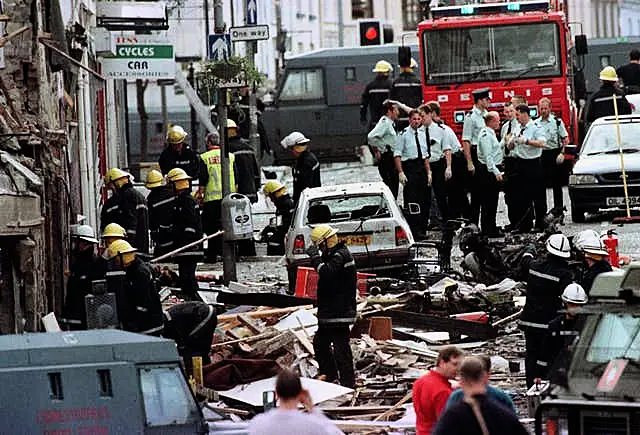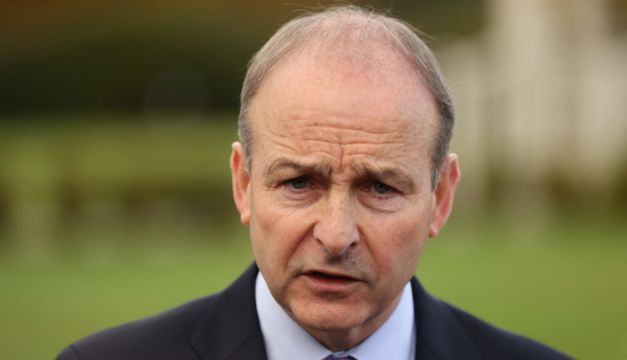Tánaiste Micheál Martin has described the approach of the UK government to Northern Ireland’s troubled past as “somewhat inconsistent”.
He was speaking after the British government announced a public inquiry into the Omagh bomb, at the same time as a Bill progresses through the British parliament which would end new court processes pertaining to Troubles offences.
Mr Martin did not rule out the prospect of an inquiry around the Omagh bomb in the Republic.
The Tyrone town was devastated by a dissident republican bomb that killed 29 people, including a woman pregnant with twins, in August 1998 just a few months after the signing of the Good Friday Agreement.

In 2021, a Belfast High Court judge recommended that the UK government carry out an investigation into alleged security failings in the lead-up to the attack, and that a similar probe should be established by the Irish Government.
Britain's Northern Ireland secretary Chris Heaton-Harris announced a public inquiry on Thursday.
Responding to calls for the Government to “step up”, Mr Martin welcomed the decision to have a public inquiry, and said the State will “fully co-operate” with it.
He said they want to see the terms of reference for the UK inquiry to decide on their approach.
“We will have to establish ourselves the precise mechanisms by which we would pursue this, either by the establishment of an inquiry in the Republic or provide full co-operation in terms of documentation and so forth to the UK inquiry,” he said.
“These are issues that we will examine … but we’re working on that already.”
He went on to describe the announcement as “somewhat inconsistent with the legacy Bill that is currently going through Westminster”.
He said the Government opposes the UK Bill and has strongly communicated their views to their British counterparts.

Minister for Foreign Affairs said the recent conviction of former soldier David Holden for the manslaughter of Aidan McAnespie in Co Tyrone in 1988 shows that court cases can still be pursued.
“We always have to think of the victims when atrocities have happened. In Omagh, we owe it to the 29 victims to do everything we possibly can to provide any information that we have to help clarify the circumstances of that bombing,” he said.
“Although you should never lose sight of the people who planted the bomb, who premeditatedly decided to put a bomb together, transport it and plant it in a town knowing that the result would be the murder of innocents. They are the culprits, ultimately.”
Mr Martin also said that if people are seeking information or documentation from the Republic, then “that should be forthcoming”.
Earlier, DUP leader Sir Jeffrey Donaldson said if the Omagh bomb inquiry is to establish the full picture, that requires the Republic to also hold a similar process in parallel.
“The bomb was placed by republican terrorists in Omagh but it was planned, prepared and transported to Omagh from the Republic of Ireland,” he said.
“I trust the Irish Government will step up to the mark on this legacy issue as well as others.”
The issue was also raised with Mr Martin by the Ulster Unionist Party (UUP) and the SDLP.
UUP leader Doug Beattie said: “We did say to Micheál Martin that we believe the Irish Government needs to do more, not just on the Omagh bomb inquiry, we think they need to have their own inquiry in Ireland, but on legacy as a whole, remembering, of course, that hundreds, if not thousands, of our citizens here in Northern Ireland were killed or injured by attacks, which came from Ireland, and the perpetrators returned back to Ireland again.
“We did make the point strongly that they need to do more.”
SDLP leader Colum Eastwood said he believes it is “very clear that the Irish Government are committed to not being left behind in terms of this investigation”.
“I think yesterday was a very good day for the Omagh families, it took far too long,” he said.
“But I have no doubt that the Irish Government will step forward and not be left behind when it comes to investigating the Omagh bombing.”







